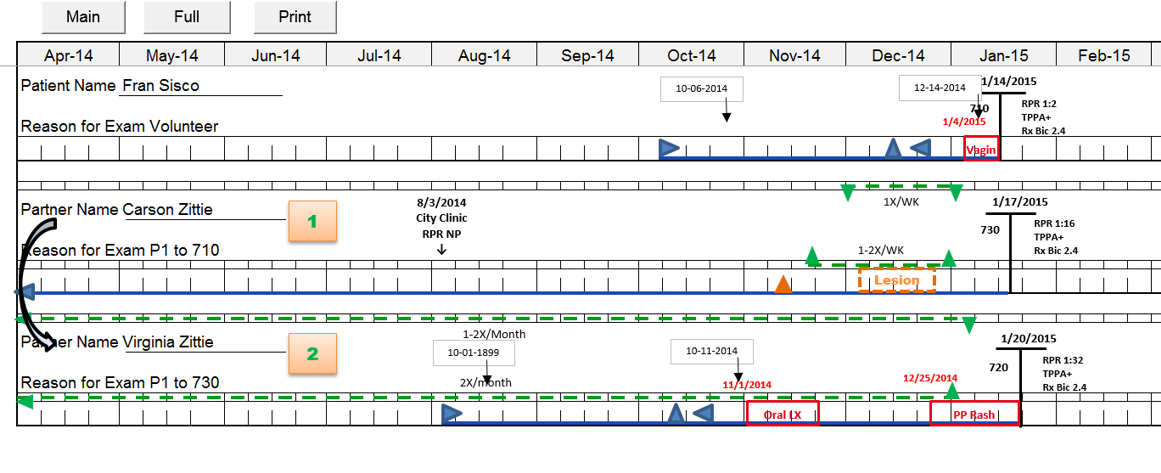By Julie Hartley, Disease Intervention Specialist, Monroe County (IN) Health Department
Disease intervention specialists (DIS) are an integral part of the public health workforce. Originally established in the field of STD prevention, DIS have increasingly been utilized in other program areas such as tuberculosis, hepatitis, and HIV linkage and re-engagement in care. During times of public health emergency, DIS are often called upon to assist. They are often the first person responding to a patient’s sexual health crisis and are responsible for confidentially notifying partners of exposure to a sexually transmitted infection and providing linkages to testing and treatment.
Because this position requires such a diverse knowledge base and set of skills, from disease-specific information to counseling techniques, the training for a new DIS can be somewhat lengthy. The intensive educational component takes approximately three months and a DIS isn’t considered trained until at least 6 months. The main training course is called Passport to Partner Services, and modules include a number of infectious disease topics such as HIV, syphilis, chlamydia, gonorrhea, and hepatitis, and skills such as communication, interviewing, field investigations and notifications, and referrals and linkages to care. The last part of the DIS training is called “Track D,” where DIS spend the week honing their interviewing skills and work on their ability to plot the progression of a syphilis case using a visual case analysis. Due to the evolving role DIS play in the public health workforce, additional training and skill development is always needed. Moving forward, additional training for linkage to care, internet partner services, new/updated test technology, and emergency response readiness may be on the horizon for many DIS.
Another component of DIS training is shadowing a seasoned DIS to see how they operate on a day-to-day basis. This can be difficult to coordinate, since in many jurisdictions the closest DIS are a couple of hours away and many DIS supervisors are epidemiologists, public health nurses, or other health department staff who were never trained as a DIS themselves. Thus, peer learning and mentoring is one of the most important aspects of training and because often the situations DIS encounter are not covered in the Passport to Partner Services course. Some of the most important skills are interpersonal skills that cannot be taught in the DIS training, such as diffusing tense situations and interacting with angry individuals. Ongoing support from other DIS and their supervisors is critical.
Interacting with DIS from across the country is also incredibly valuable in the learning process. Last October, I was able to attend the National Coalition of STD Director’s (NCSD’s) Annual Conference with support from NACCHO. This meeting was a great opportunity to meet seasoned DIS from across the United States and its territories, with some participants coming from as far away as Guam. I attended sessions from the DIS track such as “Enhancing DIS Interview Techniques: Tips and Tools from the Field.” It was a great opportunity to learn new skills and approaches to take in situations, as well as more about the field of STD prevention and the directions it is moving in. I also attended a session that introduced the work NACCHO, CDC, NCSD, and the Public Health Accreditation Board are doing to establish a DIS certification program. A national certification program would standardize the DIS workforce and ensure comparable training across the country. It would also increase the recognition of the work we do and help make some of the currently unnoticed work we do more visible. Overall, the conference was helpful for me to see how DIS fit into the broader landscape of STD prevention and to learn about advancements in the field, such as the implementation of rapid syphilis testing. I look forward to learning more about opportunities for DIS and hope to attend NCSD’s Annual Meeting again in the future.
Read more about my experience with DIS training in my story from the field.
Additional Resources:










